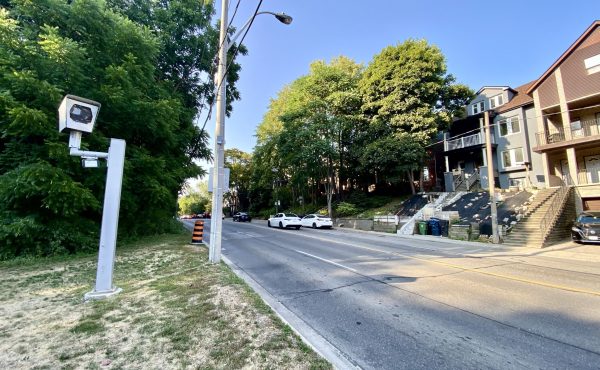If you listen closely to critics of the Metrolinx Big Move investment strategy, there are two distinct, although closely related, arguments about why this provincial agency shouldn’t get its grubby fingers on billions in proposed transit taxes and levies.
One strand, of course, has to do with the money itself: “The province has plenty already, and Queen’s Park is a gigantic cesspool of waste, ergo a government with the necessary stamina to slash spending should be able to locate an additional $2 billion without hitting up GTHA residents.” The Toronto Region Board of Trade, hardly a hive of Liberal sycophants, has repeatedly rejected this argument, but that stance hasn’t prevented the waste detectives from advancing it.
The second strand focuses on the accountability deficit: Ontario’s Liberals have presided over costly embarrassments such as eHealth Ontario, ORNGE and the gas plant debacle. So why should taxpayers trust Queen’s Park to responsibly manage a revenue stream of $2 billion a year without incurring more scandal?
Metrolinx’s answer is two-fold: one, the funds will be “dedicated,” meaning the proceeds only go towards Big Move projects and not into the vast ocean known as general revenue; and two, that a “trust fund” will be “established and governed by a board of trustees” tasked with managing and distributing the proceeds.
The reason this idea isn’t gaining much traction is because the word “trust” in this context, though perhaps soothing to some ears, doesn’t mean much. Is this bruited accountability mechanism different than Metrolinx‘s board? I’m not so sure.
What happens elsewhere?
In Greater Vancouver, they do things the old-fashioned way and trust the Translink directors, who collectively report to the Greater Vancouver council of mayors, to make sure the agency’s $1.3 billion in revenues (gas taxes, property taxes, utility fees, parking levies, fares) don’t turn into a huge West Coast slushee.
In Los Angeles County, where the Metropolitan Transportation Authority (Metro) is raising $40 billion in sales taxes over the next 30 years, an independent “office of the inspector general” was established 20 years ago (with the creation of Metro) and granted broad legal powers to audit the agency’s books, conduct investigations, detect fraud and perform other kinds of management reviews, all of which are reported publicly (and in laborious detail).
I am not waiting by the phone for news that some rogue bureaucrat has made off with the bank account of an organization as operationally complex as Metrolinx. But from the Ontario Liberals’ perspective, the hypothetical comparisons to other troubled provincial agencies is a huge impediment to their transit agenda.
And why shouldn’t it be? After all, this government bears ultimate responsibility for the aforementioned fiascos, so it’s going to have to work that much harder to persuade voters that their money will be in good hands.
Here’s my suggestion: long before transportation minister Glen Murray comes up with his own revenue scheme, the Liberals should table amendments to the Ontario Auditor-General’s enabling legislation requiring that office to perform triennial value-for-money audits of Metrolinx’s dedicated Big Move revenues and operations. The legislation should also make the A-G’s recommendations binding.
The rationale? In a suspicious era, auditors-general continue to enjoy (and cultivate) a high level of public confidence and multi-party support. The auditors themselves are appointed for lengthy terms and are thus insulated from political pressure. And they have the resources and expertise to do significant probes resulting in better financial accountability and important policy reforms.
True, the Ontario AG can already delve into Metrolinx’s books. Indeed, the current office holder, Jim McCarter, has taken a run at Metrolinx, with a detailed critique of its handling of the Presto fare card implementation, which has cost far more than expected because Metrolinx decided against off-the-shelf technology.
But by requiring the A-G to do regular audits over the life of the revenue tools measures — remember, the government has promised time-limited taxes and levies — the government would be acknowledging the importance of sustained scrutiny of an arm’s length agency that will be handling very involved and very costly projects.
There’s also precedent for this special-mandate approach. In the 1980s, the Mulroney government ordered the federal auditor-general to begin regular reviews of federal environmental and sustainable development policies and programs as part of its core mandate. That move has endured to this day.
From where I sit, such a reform would accomplish a number of critical objectives. First, it would be impossible for the opposition parties to oppose such legislation, especially given that Metrolinx is already spending $16 billion on already approved projects (Crosstown, Union Station, etc.) and thus could benefit from the scrutiny. Second, it takes the eHealth/ORNGE/gas plant scary-monster story off the table in a substantive way with a signal to voters that the government is prepared to use its heaviest weapons to protect their tax dollars. Lastly, it would clear the decks of one of the two closely connected objections to the Metrolinx investment strategy.
In fact, if Kathleen Wynne’s government can expediently get the accountability question off the political agenda with a serious and unambiguous reform, we can all focus more clearly on the core transit policy questions: Which are the most effective revenue tools? Who benefits? What are the planning implications? Which projects are most deserving? And do we even need the additional funding?
After all, we’re supposed to be talking transit, not governance, aren’t we?






7 comments
Has some one presented this idea to the Liberals yet? If not, one should, expediently. I am all for transit building. It’s long overdue. I also realize that the Libs are pretty much the only governing body across three levels of government, willing to push forward with a plan to (hopefully) get some shovels in the ground sooner rather than later. But they need to regain the public trust when it comes to handling the $$$s.
There are also 4 major projects on the go right now. Spadina subway extension, Union Station, UPEx & the recently started Eglinton Crosstown. The first three of those projects need to come in at least close to on time & on budget. I know the subway & Union Station aren’t under the Big Move umbrella but if there are significant delays or cost overruns, Metrolinx & the Libs will wear that in the court of public opinion, deserved or not. They also need to stop hedging and put shovels in the ground on the Finch & Sheppard LRTs asap. They are more or less ready to go and delays on those projects aren’t helping to build confidence in their willingness or ability to deliver fast, tangible results.
Small correction: Jim McCarter’s term expired in April. The new acting Ontario auditor general is Gary Peall. Details here: http://www.auditor.on.ca/en/about_auditor_en.htm
Given that the OLP has had a great deal of trouble even admitting that they have an accountability issue, it is difficult to imagine that they would pass legislation making the AG’s recommendations binding…
In fairness to Metrolinx, the Presto project was not originally under its control, but they now carry the can for fixing it and for its past ills. Some years down the road, probably when the (now brand new) Presto Next Generation technology wears out, “open payment” support for credit/debit cards and smart phones as identity mechanisms will be well-established. A future government may have the guts to kill off Presto as a brand and go with what should be, by then, standard cashless payment technology.
John
I’m glad that you wrote this. It is very important to get the message out to the public that we need the new transit projects and we need greater accountability built in to the system.
Listening to the arguments at the recent Transport Futures Media Debate, it seems clear that there are some opinions about Metrolinx and the Liberal government that are more based on ideology and cynicism than amything else.
I am happy with the proposed trust fund and regular, public inspections by the Auditor General (attended by/including the media if they are interested). Indeed, when I was back stopping the user’s group TRANSIT in Malaysia I proposed the same thing in order to gain public confidence in investment in public transport. That the government of Malaysia chose not to implement those steps towards accountability (though they happily borrowed ideas for transit investment) is more of a reflection on the government than the ideas themselves.
I’d love to see someone like Sue-Anne Levy open up to trusting Metrolinx if she can be involved in the regular inspection. I hope that you would be involved as well 🙂
Cheers, Moaz
Before we continue talking about new taxes or revenue tools, we should seriously question Metrolinx’s transit proposal costs. Saying that both the Yonge subway extension and the Downtown Relief Line cost $600 Million/km, whereas the Sheppard subway cost only $200 M/km (in today’s dollars), that just doesn’t cut it. How can Metrolinx asks us for more taxes, when they can’t even propose us a rational budget?
We don’t want to go down the path of many American transit projects, where taxpayers are simply gouged due to uncontrolled project costs.